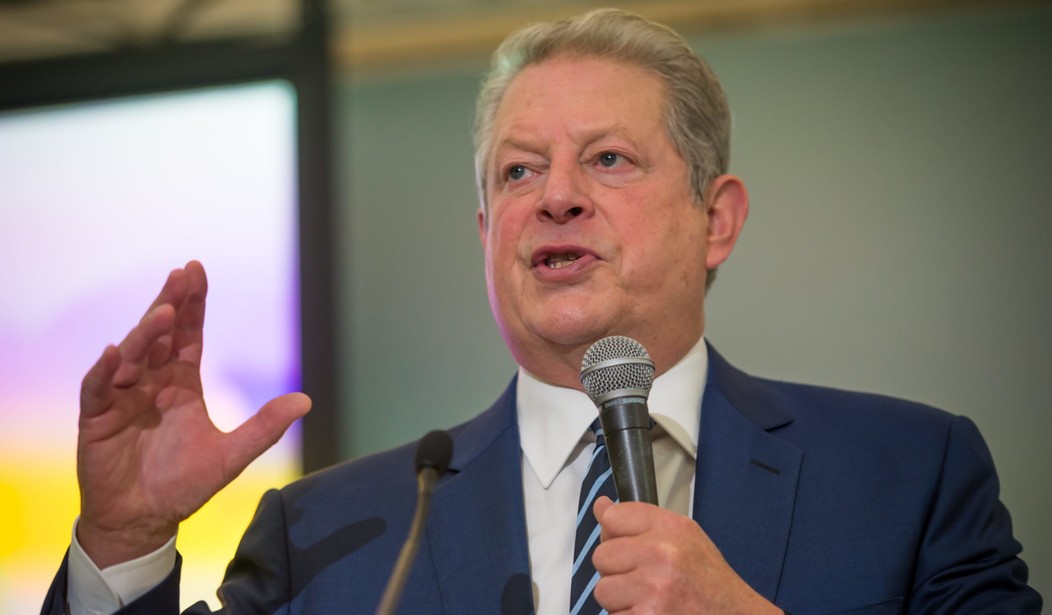Comment period for the next UN climate report has begun.
As of July 31, climate experts from around the world are providing comments to the authors of a new special report of the UN Intergovernmental Panel on Climate Change (IPCC). Entitled “Global Warming of 1.5°C”, the report will address:
… the impacts of global warming of 1.5°C above pre-industrial levels and related global greenhouse gas emission pathways.
The IPCC claims that:
The purpose of this expert review is to help ensure that the report provides a balanced and comprehensive assessment of the latest scientific findings.
In reality, the report will almost certainly be highly biased, and will ignore scientific findings that do not conform with the UN’s man-made climate change disaster scenario.
There are a number of reasons to expect such an outcome from any IPCC process.
First, consider the panel’s mandate. Most people think that the IPCC studies all climate change, and indeed, in response to the direction of UN General Assembly Resolution 43/53 of December 6, 1988, that was the original purpose of the panel. But the IPCC itself admits that that is no longer the case.
Today, the IPCC’s role is defined differently in “Principles Governing IPCC Work”:
[T]o assess … the scientific, technical and socio-economic information relevant to understanding the scientific basis of risk of human-induced climate change, its potential impacts and options for adaptation and mitigation. (emphasis added)
With this narrow focus, if human-induced climate change is found to be trivial, then there would be no reason for the IPCC to exist. The IPCC will therefore always support the climate scare, no matter what their examination of the science reveals.
The IPCC’s mandate change is apparently the result of the definition of “climate change” given by the 1992 United Nations Framework Convention on Climate Change (UNFCCC). The Convention asserted:
Climate Change means a change of climate which is attributed directly or indirectly to human activity that alters the composition of the global atmosphere and which is in addition to natural climate variability observed over considerable time periods.
Since the IPCC “Principles” state that the panel “shall concentrate its activities … on actions in support of the UNFCCC process,” then clearly the IPCC had to adopt this unduly restricted definition — and this means that policymakers, not scientists, lead the process.
Massachusetts Institute of Technology meteorology professor Richard Lindzen was not exaggerating when he said that the supposed scientific consensus was reached before the research had even begun. Indeed, this was clear from the very start. The 1990 IPCC First Assessment Report stated:
[I]t is not possible at this time to attribute all, or even a large part, of the observed global-mean warming to the enhanced greenhouse effect on the basis of the observational data currently available.
If science were leading policymaking, then it would have been premature for the UN to create the UNFCCC in the first place. Yet not only did a UN Intergovernmental Negotiating Committee produce the text of the Framework Convention in April and May of 1992, but the UNFCCC was opened for signature in June 1992 at the Rio de Janeiro Earth Summit. The primary objective of the UNFCCC is:
[T]o achieve … stabilization of greenhouse gas [GHG] concentrations in the atmosphere at a level that would prevent dangerous anthropogenic interference with the climate system.
The fact is that in 1992 — and still today — we have no idea what GHG concentrations would lead to “dangerous anthropogenic interference with the climate system.” But that was immaterial to the policy making process. The die was cast; the worldwide climate alarm had begun.
The problem with the restrictions on the scope of the IPCC’s work is that you cannot determine the human effect unless you know the amount and cause of natural climate change that exists in the background. Even if you could determine the human effect, it is clearly well within the natural variability and the margin of error of every variable of concern.
At least some IPCC participants must recognize that the UN’s skewed definition of climate change is inappropriate. A footnote to the 2007 IPCC Assessment Report’s Summary for Policymakers asserts:
Climate change in IPCC usage refers to any change in climate over time, whether due to natural variability or as a result of human activity. This usage differs from that in the United Nations Framework Convention on Climate Change, where climate change refers to a change of climate that is attributed directly or indirectly to human activity.
This is not true, of course.
Following the UNFCCC lead, the IPCC reports exclude most natural variables and mechanisms. This is politically necessary so as to support the predetermined conclusion that human sources of carbon dioxide are causing dangerous climate change. This occurred even though carbon dioxide, from natural and anthropogenic sources combined, constitutes only 4% of atmospheric greenhouse gases.
Voltaire once said, “If you wish to converse with me, define your terms.” Like the politicians and bureaucrats who created the terms of reference for the IPCC and the UNFCCC, Voltaire understood how definitions direct and limit debates — and ultimately control outcomes.
It is time for governments to wake up to this scandal, and withdraw funding to UN organizations that promote the climate scare.









Join the conversation as a VIP Member